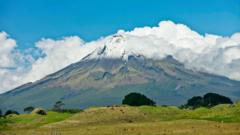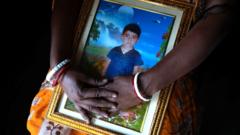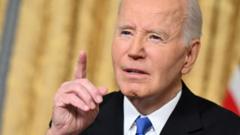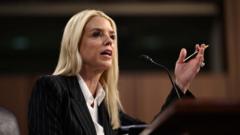The Cook Islands, a self-governing nation in the Pacific, is caught in a delicate relationship with New Zealand as it advocates for its own passport, a proposal firmly rejected by Wellington.
Cook Islands Faces Rejection of Independent Passport Proposal by New Zealand
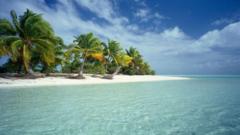
Cook Islands Faces Rejection of Independent Passport Proposal by New Zealand
Cook Islands seeks a distinct passport for its citizens, but New Zealand asserts sovereignty requirements impede this goal.
New Zealand has dismissed the Cook Islands’ request for a unique passport that would allow citizens to retain their New Zealand citizenship. As a self-governing nation in "free association" with New Zealand, Cook Islanders enjoy rights such as living and working in New Zealand, but New Zealand insists separate citizenship can only be granted to fully independent countries. Prime Minister Mark Brown's initiative to secure a separate passport is aimed at acknowledging the identity of Cook Islanders; nonetheless, negotiations have met considerable obstruction.
Documents obtained by local broadcaster 1News reveal that Brown has been actively pursuing the separate passport issue for months. Nearly 100,000 Cook Islanders currently reside in New Zealand, compared to about 15,000 living on the islands themselves. Cook Islanders are permitted to participate in New Zealand's elections after living there for over a year, adding complexity to the citizenship debate.
Concerns have surfaced among Cook Islanders regarding the potential implications of separate citizenship on their access to essential services, particularly healthcare, in New Zealand. Some residents express frustration over the perceived lack of consultation from their government surrounding this pivotal decision. Thomas Wynne, a Cook Islands national living in Wellington, emphasized the need to prioritize public opinion in deciding such important matters.
New Zealand's Foreign Minister, Winston Peters, concluded discussions by asserting that separate citizenship is contingent upon full independence. Peters explained that any alterations in the relationship between the two nations would necessitate a referendum, empowering the Cook Islands populace to choose between maintaining their current New Zealand citizenship status or pursuing full sovereignty.
In response, Brown stated that the Cook Islands would uphold its significant relationship with New Zealand during any future deliberations. The Cook Islands' situation echoes similar experiences of other self-governing territories globally, such as Greenland and Puerto Rico, each juggling varying degrees of autonomy and external affiliations.
Documents obtained by local broadcaster 1News reveal that Brown has been actively pursuing the separate passport issue for months. Nearly 100,000 Cook Islanders currently reside in New Zealand, compared to about 15,000 living on the islands themselves. Cook Islanders are permitted to participate in New Zealand's elections after living there for over a year, adding complexity to the citizenship debate.
Concerns have surfaced among Cook Islanders regarding the potential implications of separate citizenship on their access to essential services, particularly healthcare, in New Zealand. Some residents express frustration over the perceived lack of consultation from their government surrounding this pivotal decision. Thomas Wynne, a Cook Islands national living in Wellington, emphasized the need to prioritize public opinion in deciding such important matters.
New Zealand's Foreign Minister, Winston Peters, concluded discussions by asserting that separate citizenship is contingent upon full independence. Peters explained that any alterations in the relationship between the two nations would necessitate a referendum, empowering the Cook Islands populace to choose between maintaining their current New Zealand citizenship status or pursuing full sovereignty.
In response, Brown stated that the Cook Islands would uphold its significant relationship with New Zealand during any future deliberations. The Cook Islands' situation echoes similar experiences of other self-governing territories globally, such as Greenland and Puerto Rico, each juggling varying degrees of autonomy and external affiliations.

